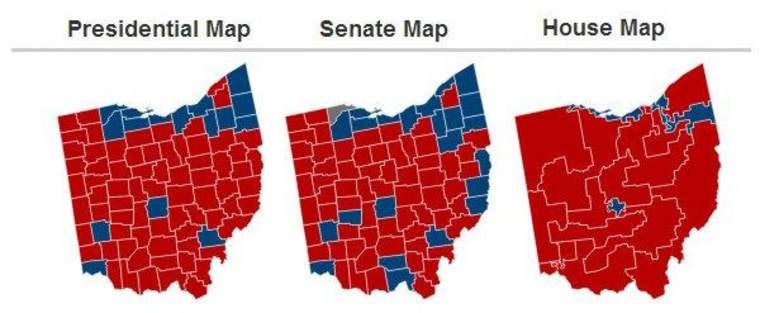I know that House Speaker John Boehner has no interest in cutting loose the extremists in his party to produce a reasonable bill that Democrats can also support, and I understand that despite the large scale consequences of Congress' serial failures, the politics under which members of Congress ultimately operate is local. And, as Rachel explained and illustrated the other day, those local politics are largely numbed of accountability by can't-lose, gerrymandered districts. (See also Steve's post last week about the death of swing districts.)
But still, aren't there some Democrats in John Boehner's home district that might be won over by a gallant, party-blind effort to save the nation's economy? Is there no upside incentive at all for Boehner to take a different perspective on fiscal negotiations?
After surveying the electoral lay of the land in Ohio, I think I understand why the answer is no. See what I looked at after the jump and tell me if you see some hope I might have missed:
As a reminder, here's how the statewide popular vote in Ohio translated into Congressional representation:
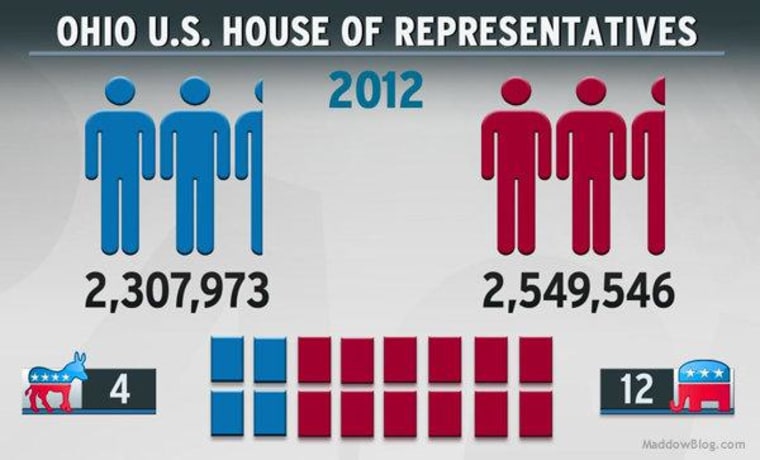
The number of Ohioans who voted Democratic or Republican was pretty close, but the number of representatives they sent on to Washington was not close at all. Were any of those Democrats in Boehner's District 8? Looking at the 2012 House election results for District 8 might suggest there are zero (which is surely not the case). Ballotpedia is helpful here showing that, true to the formula, Boehner did have to fend off a tea party attack from his right (though the votes for primary challenger David Lewis were a relative pittance, 71,120 to 13,773). In the general election, Boehner was challenged again from his right by roughly 2000 write-in votes for Constitution Party candidate James Condit, Jr.
The Democratic candidate in the general election? Didn't exist. No Sam Seaborn, not even an Alvin Green. Apparently no one thought the "John Boehner is bad at his job" hypothesis was sufficient grounds to run against him.
That same Ballotpedia page uses data from the Ohio secretary of state of registered voters (20.2MB xlsx) and finds 31,878 Democrats, 109,781 Republicans and 326,825 other & unaffiliated giving Republicans a 244.38% party advantage.

We do know that Democrat Justin Coussoule managed 65,883 votes against Boehner's 142,731 (pdf) in 2010 under the old district map, which is a drubbing by every definition, but if you're looking for any reason for John Boehner to express some bipartisanship, this is at least a glimmer.
In case you're wondering, Ohio's District 8, which was already heavily Republican, did change a little in the newly redistricted map that went into effect beginning with the 2012 election. The images from Politico at the top of this post actually have it drawn wrong.
Visually, the best look at it is this toggle-able map from GovTrack. (Best to click through. The embed doesn't seem to have all the features.)
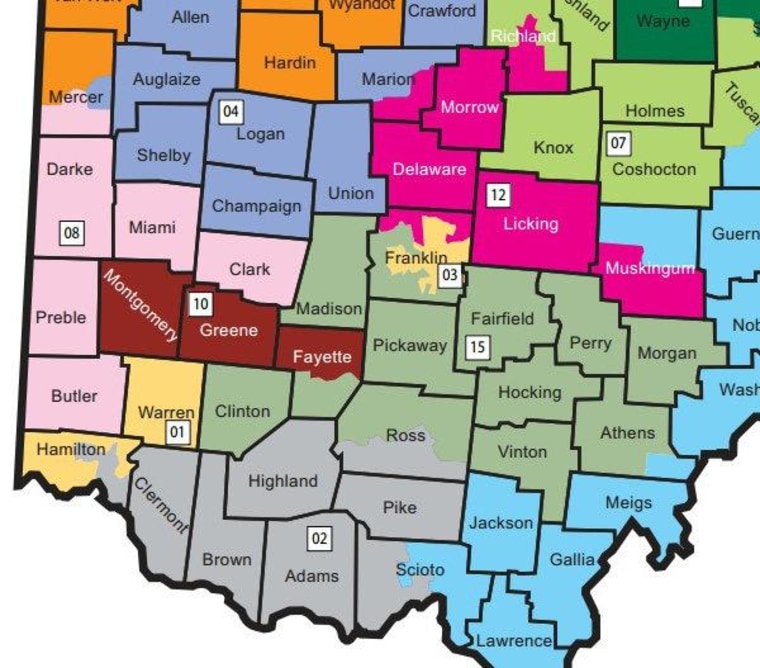
You can also see the official static versions of before (pdf) and after (pdf).
Looking at the regular old roadmap of Ohio it's interesting to note the shape of District 8 in relation to the placement of the population centers of Dayton and Cincinnati and the development along I-75.
Presumably the architects of these districts are familiar with the data behind Dave Troy's population density election graphs.
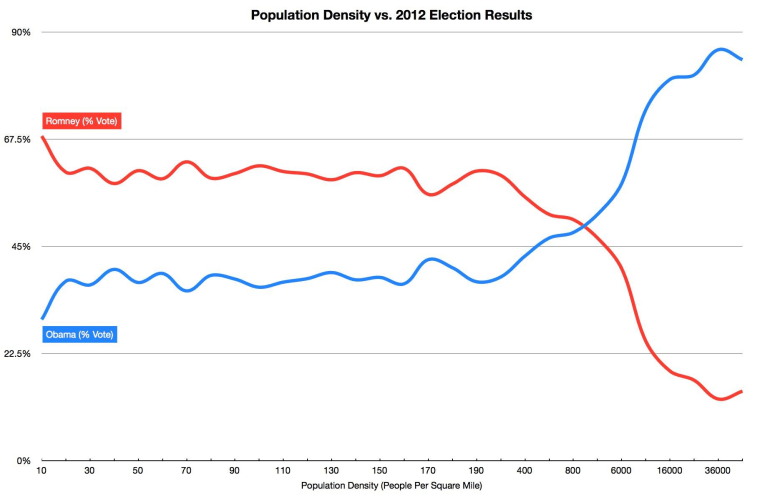
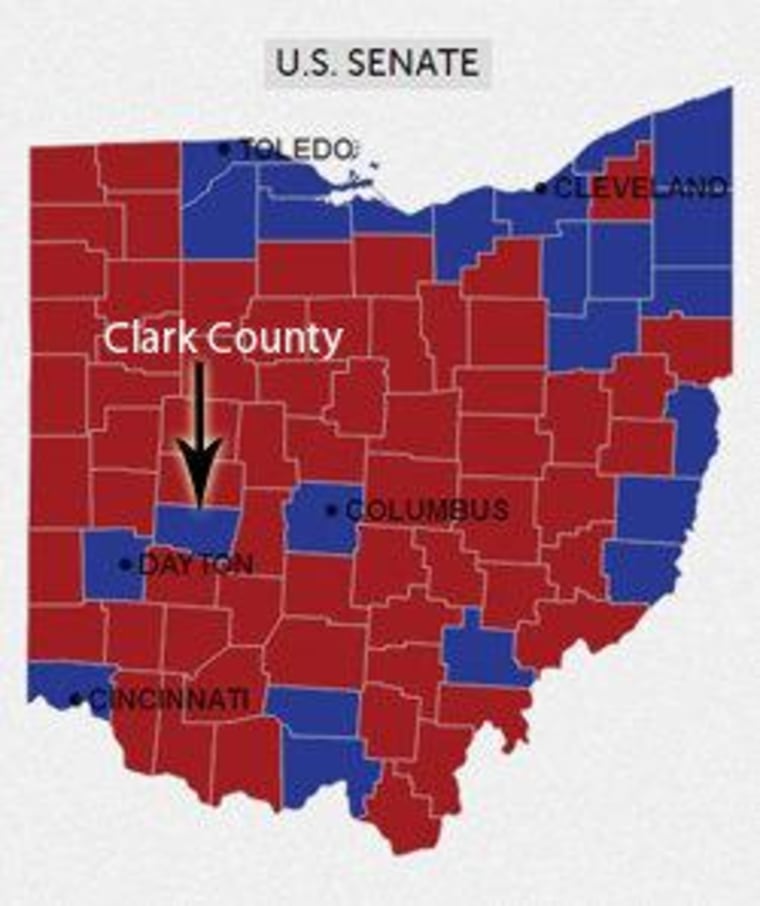
But wait! Clark County is part of District 8 now and President Obama was just hundreds of votes away from winning there and it actually went blue for Sherrod Brown for senate. Surely that calls for some "other side" consideration from Boehner?
Yes, except the consideration he probably makes is that what cost Josh Mandel in Clark County were the nearly 3000 votes for Scott Rupert, whose agenda page paints an essentially libertarian picture.
No doubt the lesson Boehner sees there is not the availability of Democratic votes but the threat of losing support from his right flank.

Bonus, kind of related map:
NPR has a series exploring state issues call "State Impact" that includes a map of county-by-county Ohio vote results for 2010 governor and an anti-collective bargaining referendum called "Issue 2." Not exactly relevant to Rep. Boehner's purview, but still an interesting characterization of the state of Ohio.
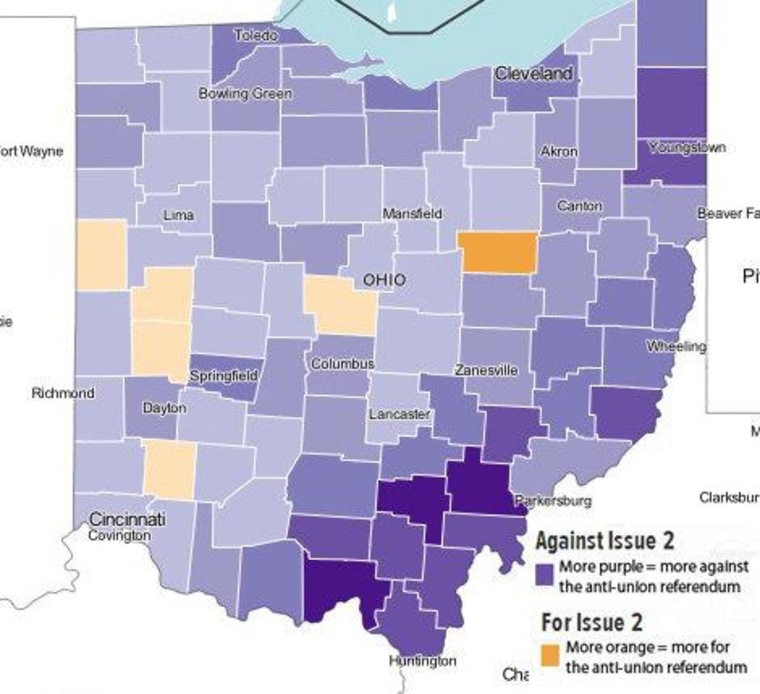
I'm not from Ohio and I've only been to Cleveland, so as ever, I appreciate any further insights you can share on whether there's any source of home-district pressure on John Boehner to compromise in fiscal negotiations.
